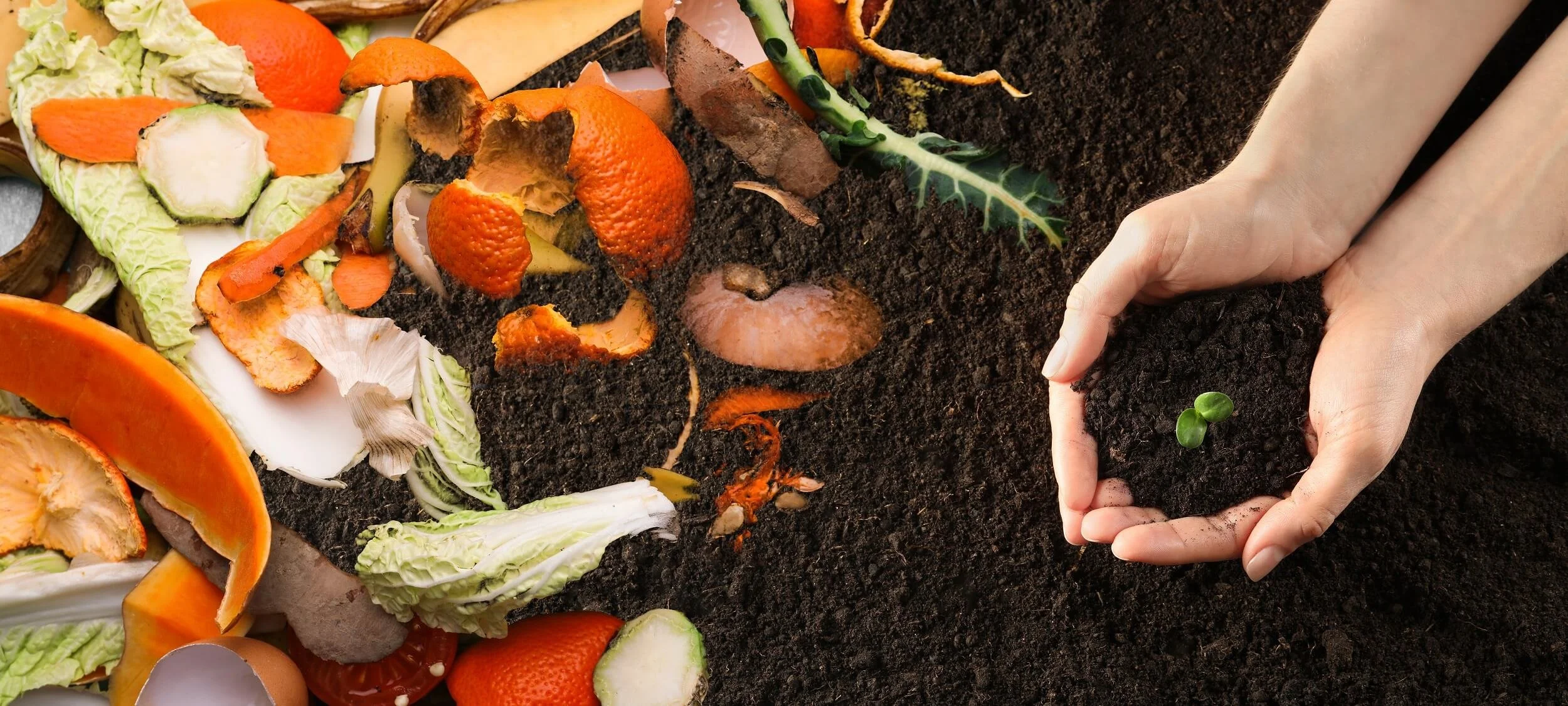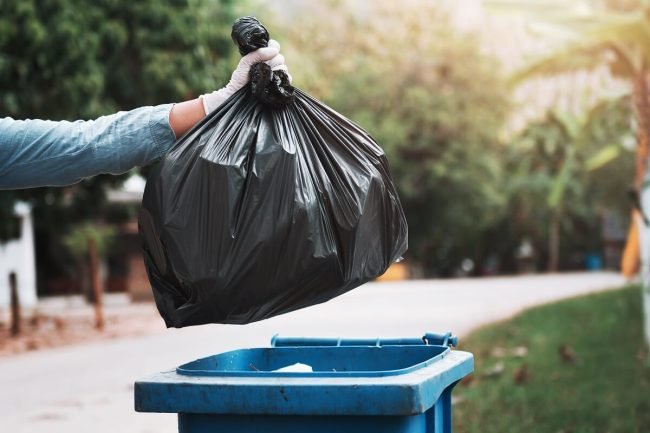Composting Can Reduce Our Impact on the Planet
Composting is a process where food waste and other organic matter decomposes, producing nutrient-rich compost that can be used to enrich soil.
Collecting food waste is a simple task that nearly anyone can do, either at home or through their workplace. Yet as a country, we’re not doing a great job at it.
A recent report found that Americans only compost about 6 percent of their kitchen scraps, while nearly 35 percent of the entire U.S. food supply is thrown away. It’s easy to see that a huge impact is waiting to be made by composting, one that would take just a little individual effort.
Why Should I Compost, You Ask?
Let’s take a look at the current situation that composting is attempting to address.
We Are Wasting A lot of Food
Global:
17% - An estimated 17% of food production is wasted in retail, food service, and individual households combined.[1]
⅓ - Around ⅓ of the world’s food production is lost or wasted.[2]
U.S.:
40% - Almost 40% of the country’s food supply was wasted in 2023.[3] That’s nearly a ten percent increase from 2010.[3]
22% - Food waste accounts for 22% of the contents in U.S. municipal landfills.[4]
66 million - The Environmental Protection Agency estimated that in 2019 about 66 million tons of food waste in total was generated by the combined food retail, service, and residential sectors.[5]
Generating a lot of Methane Emissions
When organic waste in landfills breaks down, it produces Landfill Gas (LFG), which is made up of approximately 50% carbon dioxide (CO2) and 50% methane gas.
8 - 10% - The United Nations Environmental Programme estimates that food waste makes up 8 to 10% of total global greenhouse gas emissions.[6]
28x - The methane gas generated by rotting food in landfills is 28 times more effective in trapping heat in the atmosphere than CO2.[7]
14% - Municipal solid waste (MSW) landfills in the U.S. produced 14% of all the methane emissions in 2021, making them the third largest source of methane gas in the country. This is the equivalent of the emissions in one year from 23 million gas powered cars.[7]
58% - An estimated 58% of all methane emissions that are released into the atmosphere from MSW landfills are produced by food waste in landfills.[8]
Filling Up Landfill Sites
Beyond the immediate issues of food waste and greenhouse gas emissions, there is also the issue of landfill capacity.
2040 - Of the 12 MSW landfills in the Houston area, only 5 will still have enough capacity to remain in operation by 2040. [9]
2073 - In a 2022 survey by the Texas Commision on Environmental Quality, the statewide estimate of remaining MSW landfill disposal capacity was 51 years, or 2073.[10]
And Not Composting Enough
While composting has become more and more available in the United States, not nearly enough of us are utilizing it.
5% - Of the 106 million tons of food waste produced in 2019, only 5% of that was composted.[11]
27% - Of the entire U.S., an estimated 27% have access to a composting program of some kind.[12]
[1] un.org - “Reducing food loss and waste: Taking Action to Transform Food Systems”
[2] fao.org/ “Global Food Losses and Food Waste”
[3] edapp.com - “The Alarming Food Waste Statistics of 2023 and What It Means”
[4] rts.com - “Food Waste in America in 2024”
[5] epa.gov - “Food: Material - Specific Data
[6] unep.org - “UNEP Food Waste Index Report 2021”[7] epa.gov - “Basic Information About Landfill Gas”
[8] epa.gov - “Quantifying Methane Emissions from Landfill Food Waste”
[9] houstontx.gov - “Integrated Resource Recovery Management Plan February 2021”
[10] tceq.texas.gov - “Municipal Solid Waste in Texas: A Year in Review - 2022 Data Summary and Analysis”
[11] epa.gov - “2019 Wasted Food Report”
[12] sustainablepackaging.org - “Composting Maps: Urban Access”We Are Part of the Challenge of Diverting Food From Landfills
At its core, our business is about diverting excess food from landfills and returning the nutrients from this valuable resource back to the soil in our community.
Composting Helps in Many Ways
A change and improvement in food waste practices can affect the ecosystem in a variety of valuable ways.
Reduces Waste Sent to Landfills
Reduces methane emissions from the anaerobic breakdown of organic material.
Frees up capacity in landfills.
Improves Soil Health
Helps soils retain moisture, conserving water use.
Returns nutrients to depleted soils.
Reduces reliance on chemical fertilizers and pesticides.
Promotes higher agricultural yields of crops.
Helps prevent soil erosion.
Helps improve water quality by filtering stormwater and decreasing the runoff of nutrients and sediment.
Helps clean soil that contains contaminants.
Helps Build Climate Resilience
Helps prevent the runoff of pollutants during floods by enhancing soil’s capacity to retain water.
Helps mitigate effects of drought by improving soil’s ability to hold water longer.
Reduces energy use for irrigation (as soil retains more water).
Improves carbon sequestration by plants, helping reduce greenhouse gas emissions.
Boosts sustainable local food generation by utilizing locally sourced food scraps and organic materials to create beneficial soil enhancer that aids plant growth.
Creates Jobs and Supports Local Economies
Collection work.
Facility operations.
Sales and distribution.
Application such as landscaping and gardening.
Composting Is an Elegant Solution to a Mounting Problem
Dive deeper into how food waste in landfills creates methane, and how composting can alleviate it.
Start Making a Positive Impact!
If you are interested in composting the food waste from your home, Moonshot Compost is here to help.
We supply you with collection bins, signs on what can and can’t be collected, a drop-off option, and clean bins on every collection day - as well as our Diversion Dashboard reporting technology so you can see the impact you and your community are making through composting.











